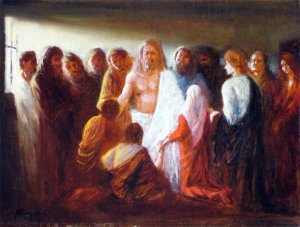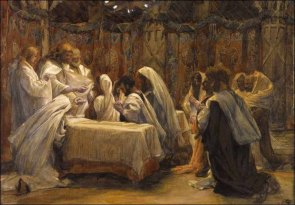Mark 16:9-15: The Entire Creation
Sunday, April 28, 2024
In this Eastertide, we have spent time with the Gospels of the Easter Octave, the eight days comprising the celebration of Easter. We hear Mark’s accounting of the doubt that seized Jesus’ followers; and we have the opportunity to explore our own willingness to share Jesus’ story with the entire creation.
Today’s verses are from the NSRV translation, but we may want to choose another version that speaks to us most clearly by using the scripture link and drop-down menus. If we want to hear an audio version of today’s verses, we visit the USCCB site.
But when the disciples heard that Jesus was alive and had been seen by Mary Magdalene, they would not believe it.
We hear the good news that Jesus assures us that we are his adopted sisters and brothers . . . but we continue to believe in status rather than love.
And the Emmaus disciples went back and told the rest of the disciples, but they did not believe them.
We hear the good news that Jesus invites us to rejoice in his return . . . but we continue to believe in power rather than hope.
Later Jesus appeared to the eleven themselves as they were sitting at the table; and he upbraided them for their lack of faith and stubbornness, because they had not believed those who saw him after he had risen.
We hear the good news that Jesus assures us of eternal peace . . . but we continue to doubt.
And Jesus said to them, “Go into all the world and proclaim the good news. to the whole creation”.
We hear the good news that Jesus assures us of eternal peace . . . and we determine to share this story with the whole creation.
Image from: https://castyournet.wordpress.com/2013/04/01/something-fishy/













